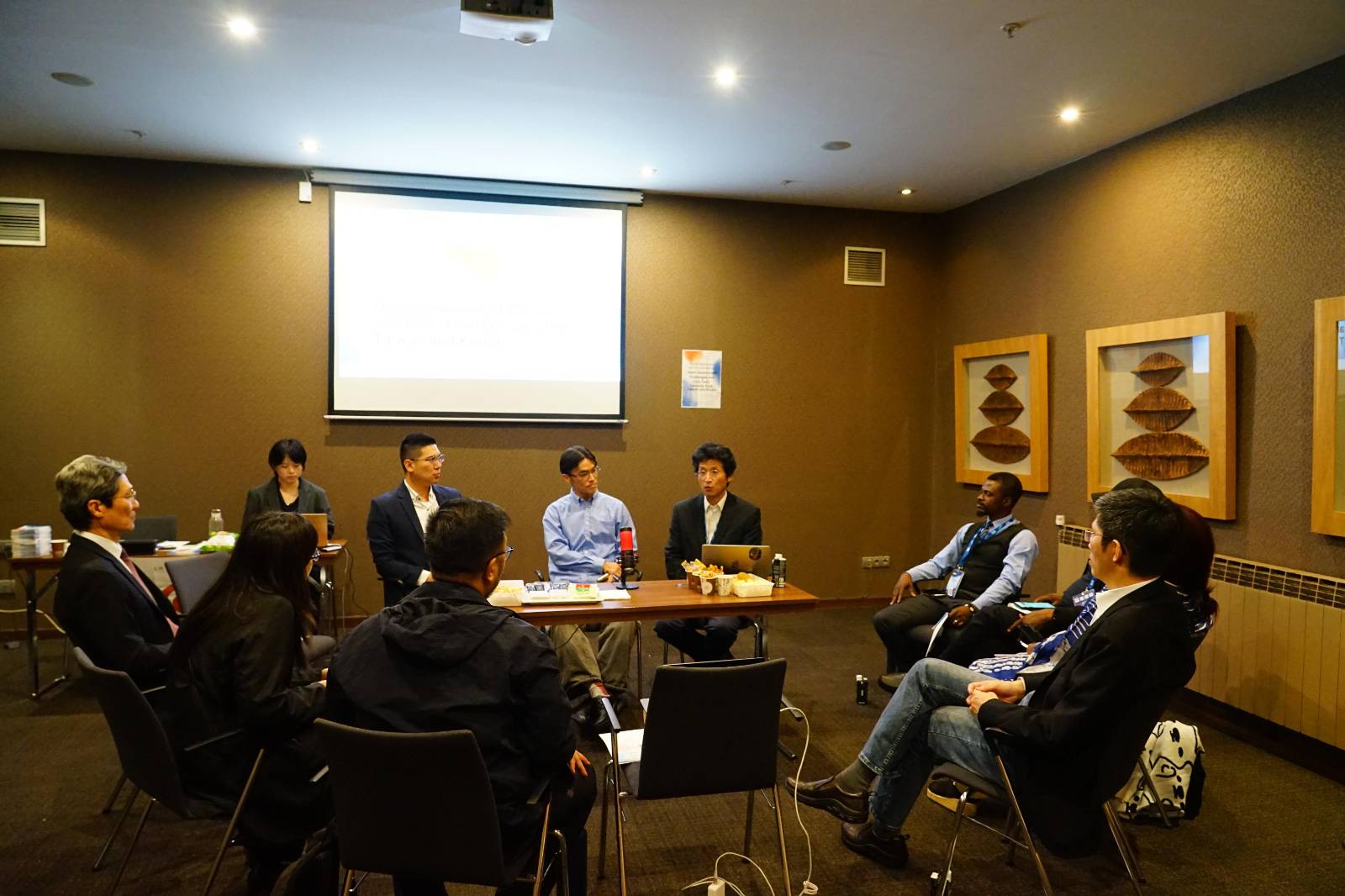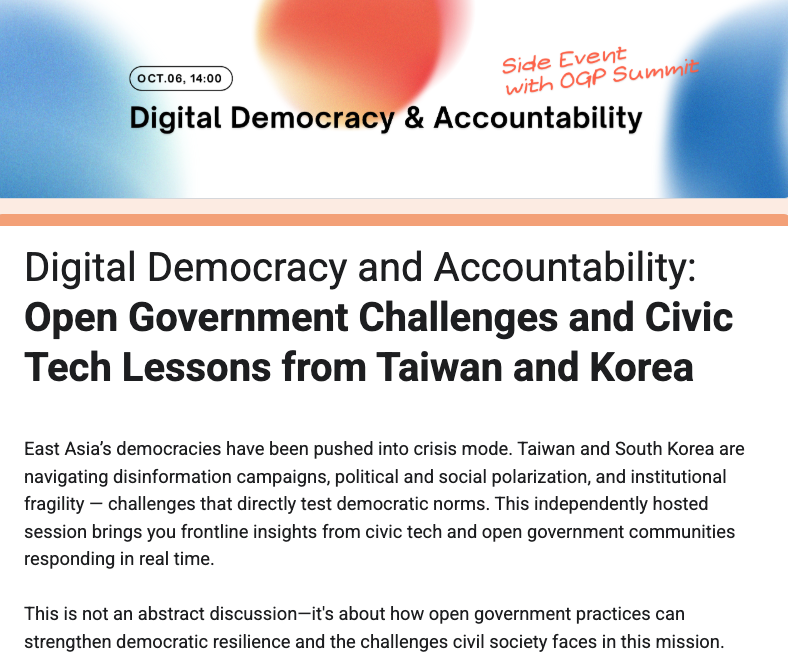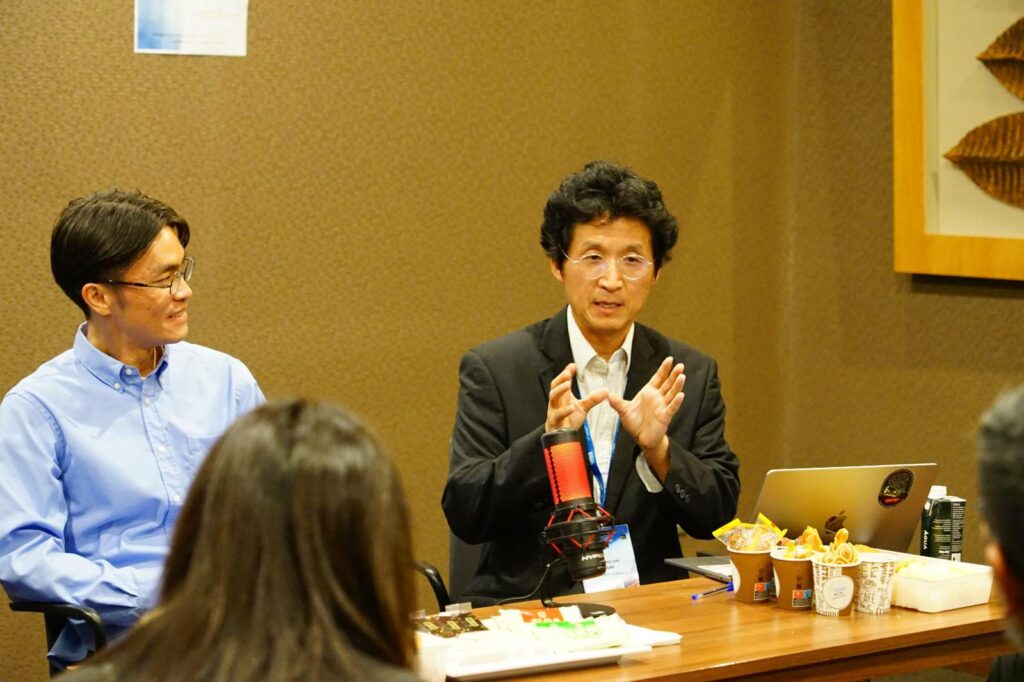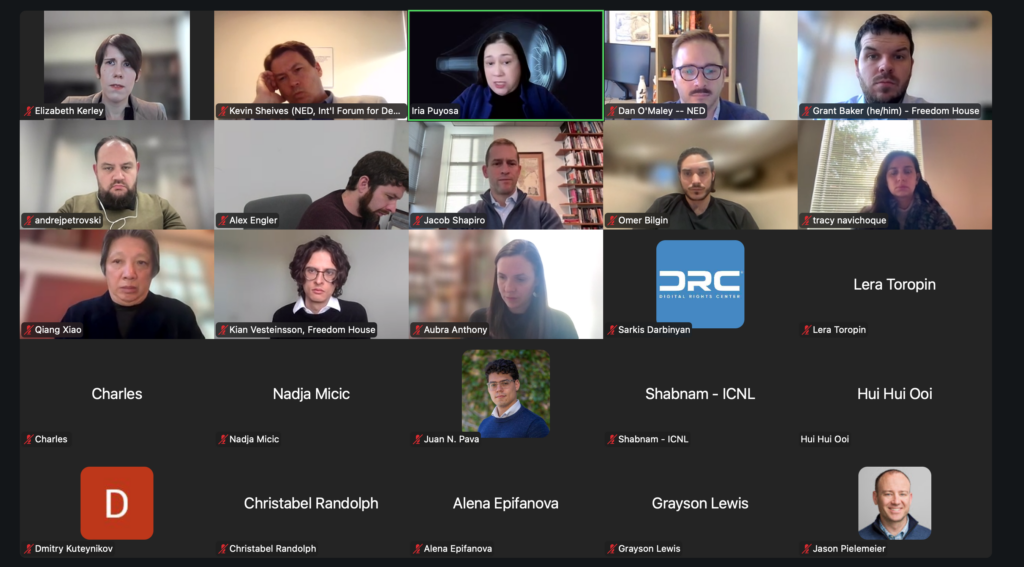KS Park spoke at Digital Democracy and Accountability: Open Government Challenges and Civic Tech Lessons from Taiwan and Korea, a October 6 side event to Open Government Partnership Summit, Vitoria-Gasteiz 2025, as follows:



The relationship between open government data and democracy was reconfirmed in South Korea in December 2024 when the ill-fated President Yoon attempted to stage a military coup against his own people in the form of a martial law. One of the reasons he resorted to the desperate measure was that the opposition party with legislative majority cut the special activities accounts that were traditionally spent by the Presidents and other high government officials without any accounting or transparency. In Asia, we should also remember that the reason that the Myanmar military junta could launch the 1980’s style military coup in 2022 and sustain it for long was the slush fund from which the junta could pay the huge number of soldiers into subservience. This explains the need for the global movement for extractive industry transparency, which was a sister of the OGP movement. (In that spirit, we had sued a Korean company POSCO International suspected of providing 5-10% of the Myanmar junta’s slush fund, though not directly on that issue, but on its land grabbing practices supported by the Myanmar military
Korea’s open government data is still limited largely because the national commitment to the OGP process is administered at a single-ministerial level, not at the level of heads of state like other countries. The number of data files in the country’s data portal, data.go.kr, seems large but many of those files contain data for single administrative districts, not the nation-wide data like you see on data.gov or data.go.uk. It is because only the local administrative entities under the interior ministry’s jurisdiction submit their data files while the critical data files from other powerful ministries such as the government budget ministry or the justice ministry have yet to enter the database.
There are other substantive reasons that open data is not fully developed. Under national security, much government-held data is exempted from FOIA despite its critical value for workplace safety, environmental protection, and other sustainability goals. Technical data collected from all “national critical industries (국가핵심기술)” are made exempt and recently the progressive(!!) party added “cutting-edge strategic industries(첨단전략산업기술)” as exempt industries as well, all in the name of protecting trade secrets holding critical importance to the national economy. The irony is that all information, even the ones not constituting trade secret, are exempt from disclosure and ends up suppressing the due discourse of workplace safety, environmental protection, and other vital issues that require such information.
Data protection ideology is also suppressing open data. We need strong data protection laws but “strong” does not mean “mechanistic”. Data protection law has built-in balance between data subjects’ rights and others’ right to knowledge. South Korean law has extra penal provisions in the data protection law that does away with the balance (Article 59). High level government officials have used data protection law to criminalize journalists trying to cover them critically or even those filing complaints against them, arguing that their personal data were used in the news article in the complaints.
Despite the difficulties, Parti and Korea Freedom of Information Center (“KFOIC”) have created data/communication platforms for CSOs in Korea to strengthen their advocacy and publicity function
- Citizen Pass https://citizens.kr: a membership-based platform for public-interest-minded people to propose to, connect, and collaborate with one another on social issues.
- Data Trust https://datatrust.me: a platform for exchanging data that CSOs and people have to reveal corruptions, discover trends, and design new movements.
- Demos X https://demosx.org: a platform for proposing reforms to the government agencies
- Factcheck Net (website under reconstruction): a platform operated by an alliance of media outlets to identify and resolve factual controversies.
- Open Watch https://openwatch.kr: a website offering a searchable database on legislators’ political funding, legislative records, etc.
Speakers and Topics of the Event
- Citizen Congress Watch (Taiwan) – Insights from the Bluebird Movement and efforts to preserve parliamentary openness, including innovative data storytelling projects with journalists to connect lawmaking processes with citizens (see below for their presentation).
- Prof. K.S. Park (Open Net Korea) – A focus on open government initiatives in Korea such as the national open data portal have expanded access to information, yet the right to information remains constrained by broad appeals to national security and data protection, leaving transparency underdeveloped and heavily government-centered. At the same time, challenges to democracy—including disinformation, hate speech, and strict state responses through harsh speech laws—have fueled polarization and risks of authoritarian rollback, creating a vicious cycle that undermines both legitimacy and public trust.
- Jason Liu (g0v, Taiwan) – Civic responses to disinformation and infiltration, using hackathons and open platforms to boost transparency and public trust.
📖 Background
In the past year, both Taiwan and South Korea have faced significant democratic turbulence and external threats to democratic processes, reinforcing the urgent need for transparency, openness, and civic participation.
In Taiwan, the Bluebird Movement in mid-2024 emerged amid legislative reform controversy, driving mass protests and judicial checks on executive overreach. Meanwhile, infiltration and espionage campaigns from mainland China have intensified concerns about external threats.
In South Korea, a brief but alarming martial law declaration in December 2024 triggered national unrest, protests, and the impeachment and arrest of President Sukyeol Yoon. Even after a new president took office in June 2025 after early election, deep social and political divisions and public distrust of institutions continue to expose the fragility of democratic stability.
These challenges highlight democracy’s fragility and underscore how civic technology and open government strategies are vital for resilience — from Taiwan’s participatory civic tech ecosystem to South Korea’s digital rights and transparency advocacy.
OGP-Side-Event_-CCW-Blue-Bird-Movement👥 Organizers:
- Wikimedia Taiwan (Digital Democracy Team)
- Citizen Congress Watch (CCW, Taiwan)
- Open Net Korea

0 Comments